By Michaela Rush, Report for America Corps Member

Fair Park First presented their plans for a long-awaited community park and an accompanying parking garage to South Dallas residents at the Pointe South Revitalization meeting last week.
“Not enough has been done to promote the growth of the surrounding neighborhood as an extension of Fair Park’s growth,” South Dallas neighbor and meeting organizer Hank Lawson said. “But you’re responsible for trying to get roads and extensions for your people to get in and out of our neighborhood.
“Why doesn’t that extend to us? Why can’t we be a part of it as well? Those are the kind of issues we begin to take up with Fair Park First.”
Fair Park First’s 20-year contract to manage Fair Park, a 277-acre Dallas City Park and National Historic Landmark, began on January 1, 2019. The nonprofit organization was created in 2018 to bid on the City of Dallas’ Fair Park management contract. After winning the contract, the city gave Fair Park First a 10-year $34.6 million grant.
The nonprofit plans to turn a parking lot bordered by Exposition, Pennsylvania, Gaisford and South Fitzhugh into a 14-acre community park with a playground, splash pad and picnic area. The area also will include a parking garage and space for an open air market.
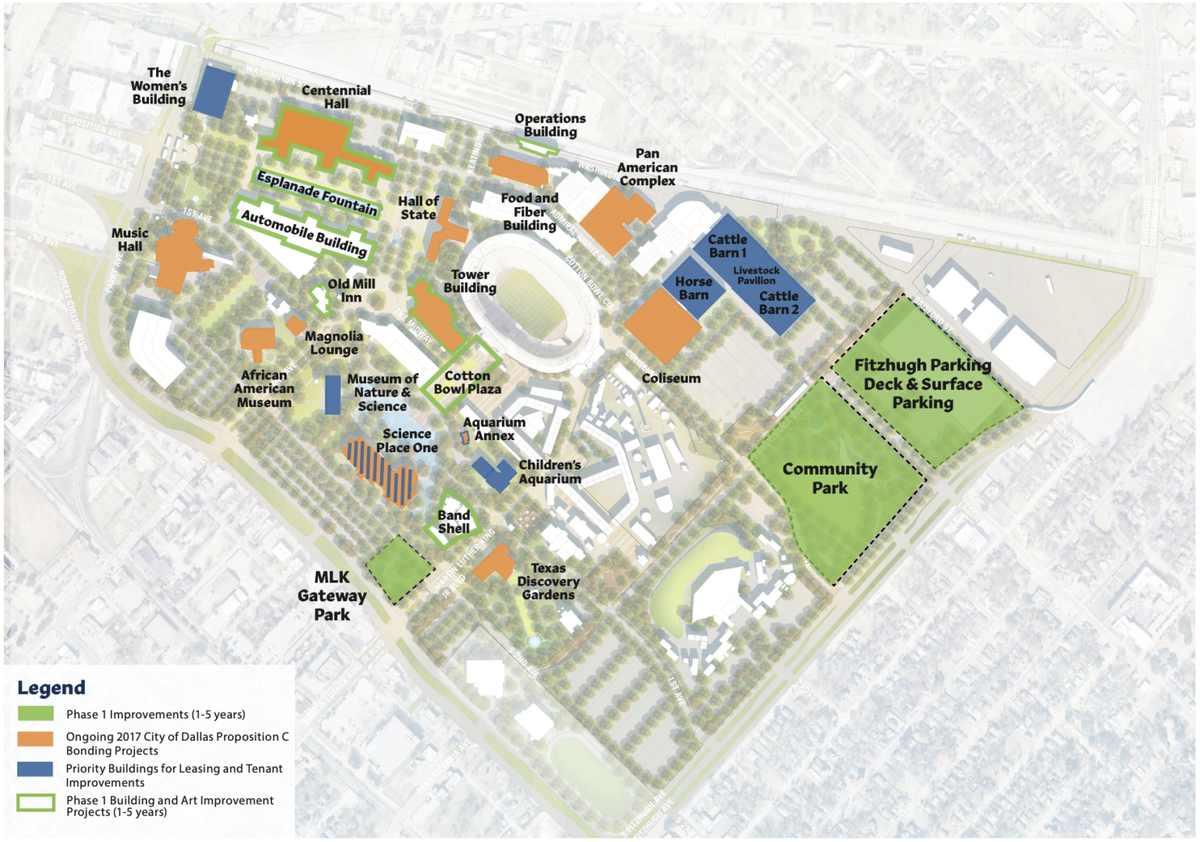
These improvements are part of phase one of the Fair Park 2020 Master Plan, which is expected to be completed by 2025, with a cost of $85.25 million. In total, the three phases are planned to continue until 2040, with an overall goal of approximately $158 million worth of new projects and renovations across the site, including historic building restoration, improved parking, and updating the Cotton Bowl Stadium.
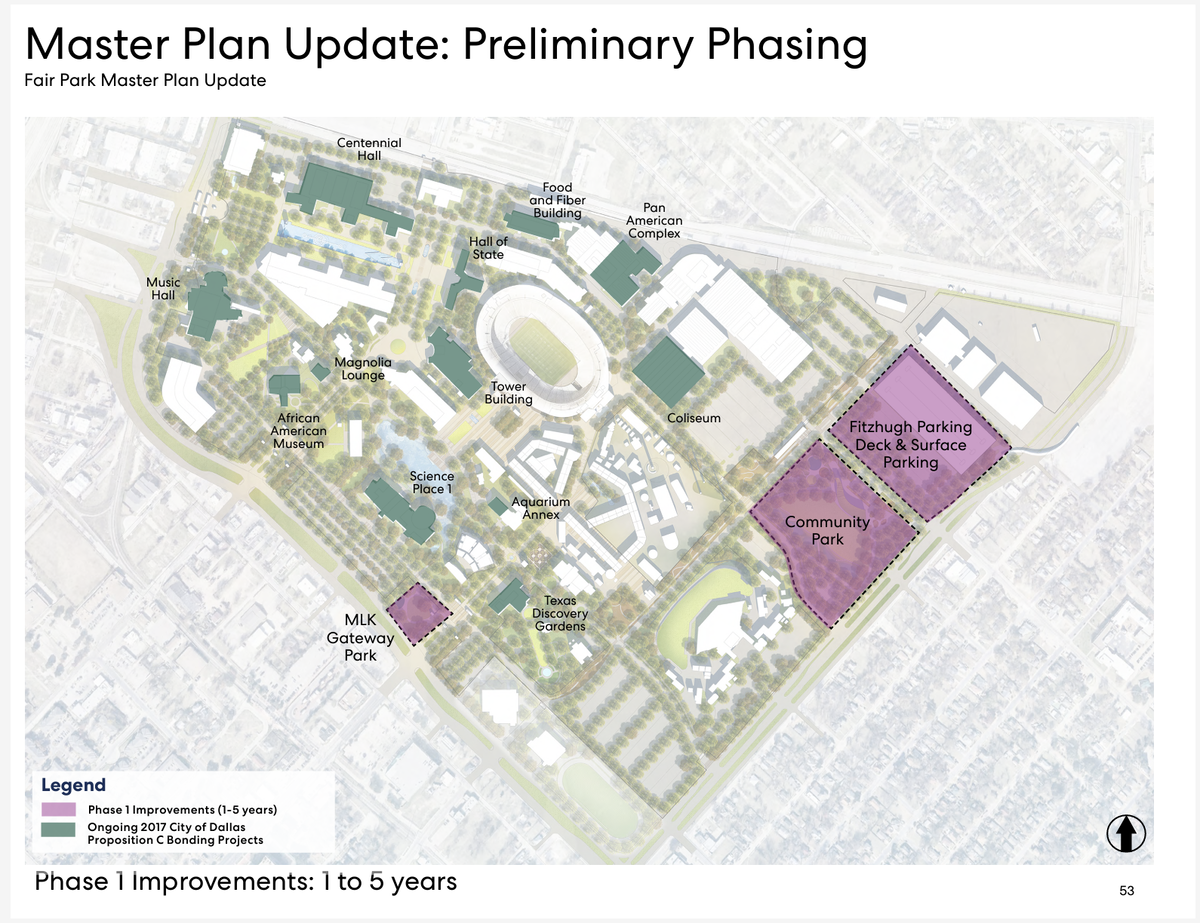
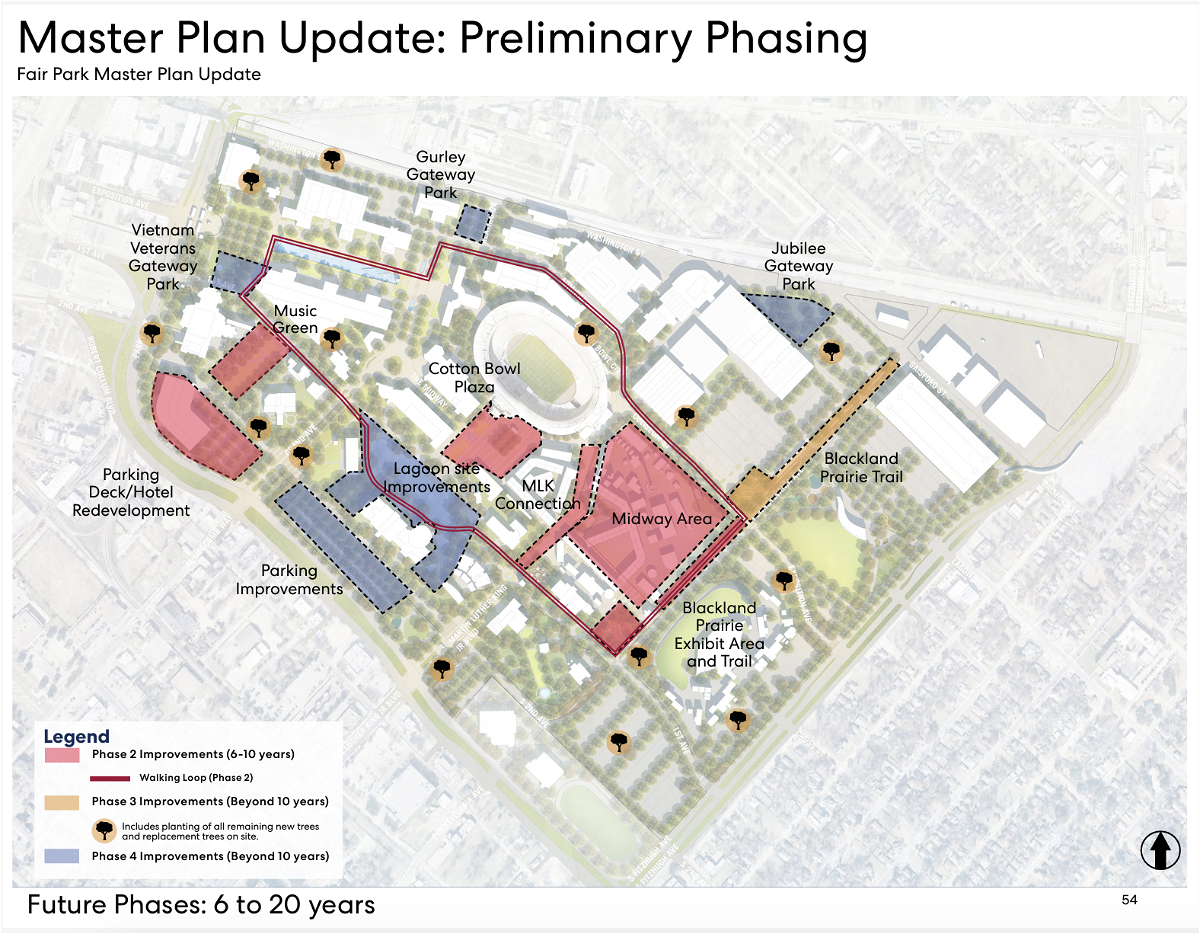
At the Monday, Aug. 28 meeting, neighbors expressed concerns about the progress of fundraising for phase one, which Fair Park First CEO Brian Luallen says is on track, with $46 million of the $85.25 million already raised since fundraising efforts started at the end of 2021. In an interview with Dallas Free Press, Luallen added that the full amount of funding isn’t needed to break ground, as the nonprofit has credit partners.
“Our interest is to start construction as quickly as possible, because the community has been promised this beautiful park for a long time,” Luallen says. He added that a redesign may be necessary to make sure that the park “is reflective of our neighbors’ wishes.” A redesign, he says, “is going to take some time.”
“We’re hoping to have a zoning hearing, and that will better answer that question, for what groundbreaking could look like.”
Fair Park First is waiting for the city of Dallas to approve their request to rezone the lots to allow for the planned height of the three-story parking garage with elevators. Luallen says the zoning hearing date is not set but may happen as soon as mid- to late October. If the City Plan Commission approves the rezoning request, the city will notify neighbors within a 500-foot radius via mail before the final City Council vote. Fair Park First says it also will notify neighbors.
During the design process, Fair Park First says they collected community feedback through surveys and community meetings, the results of which are available on the park’s website.
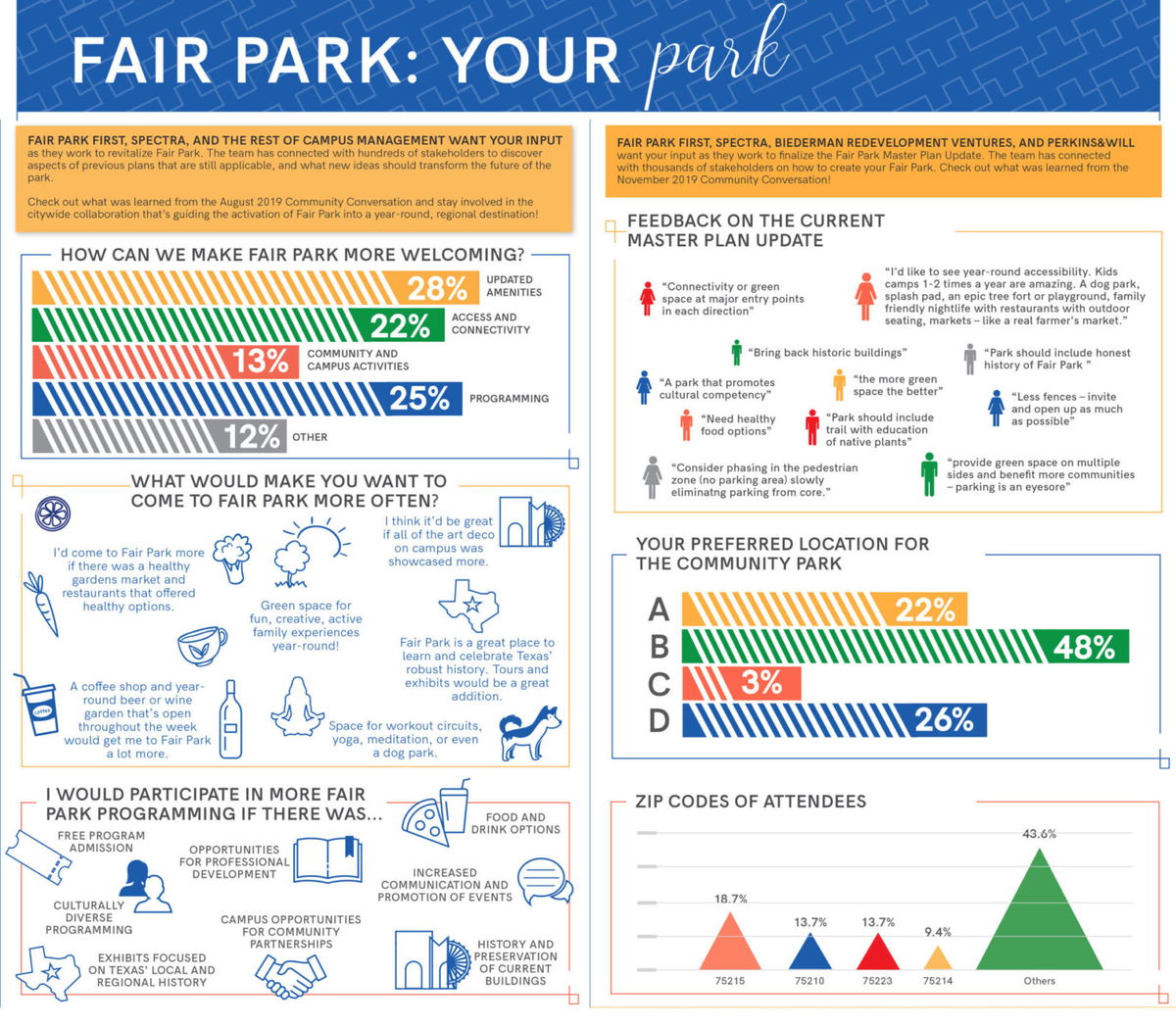
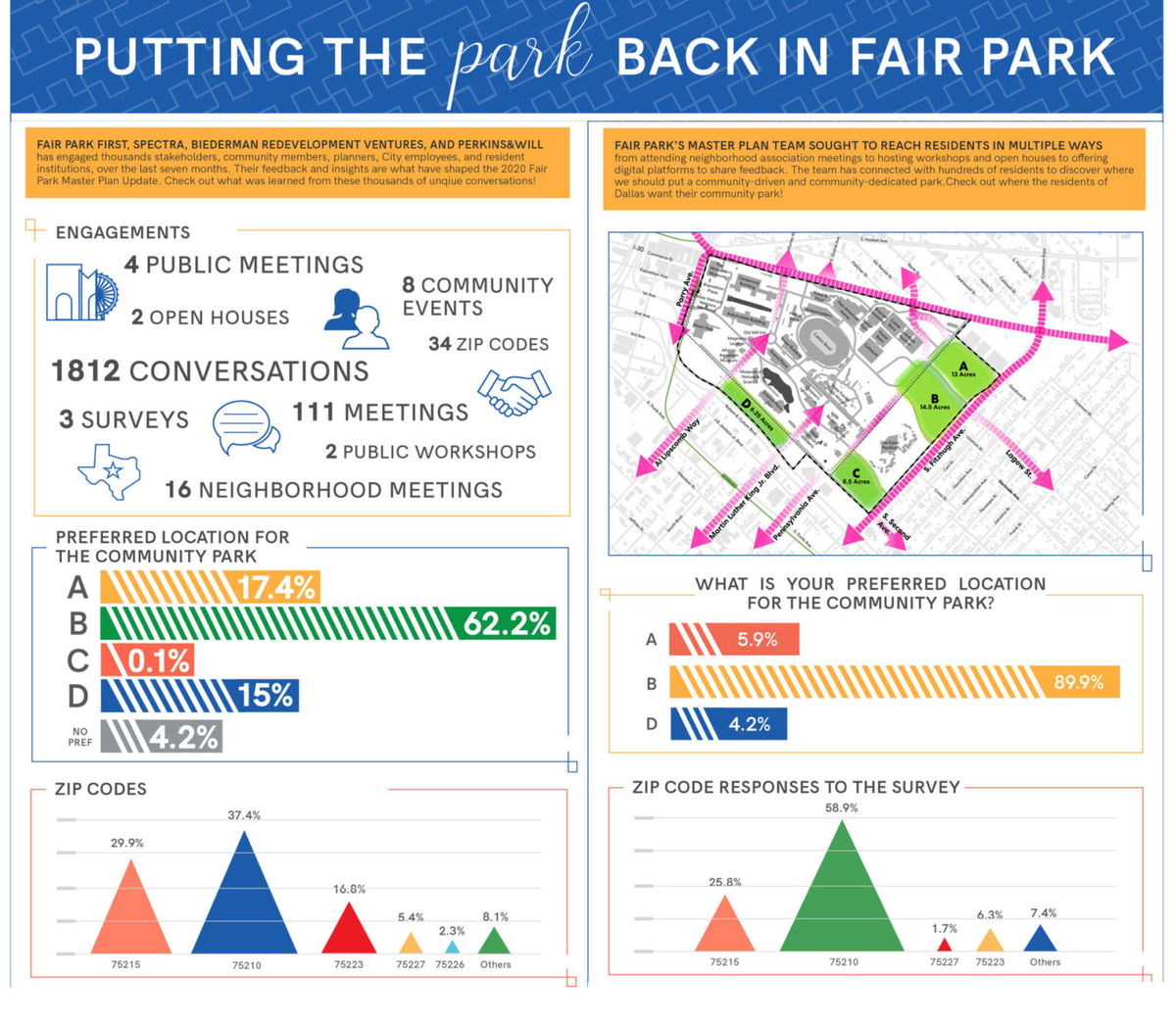
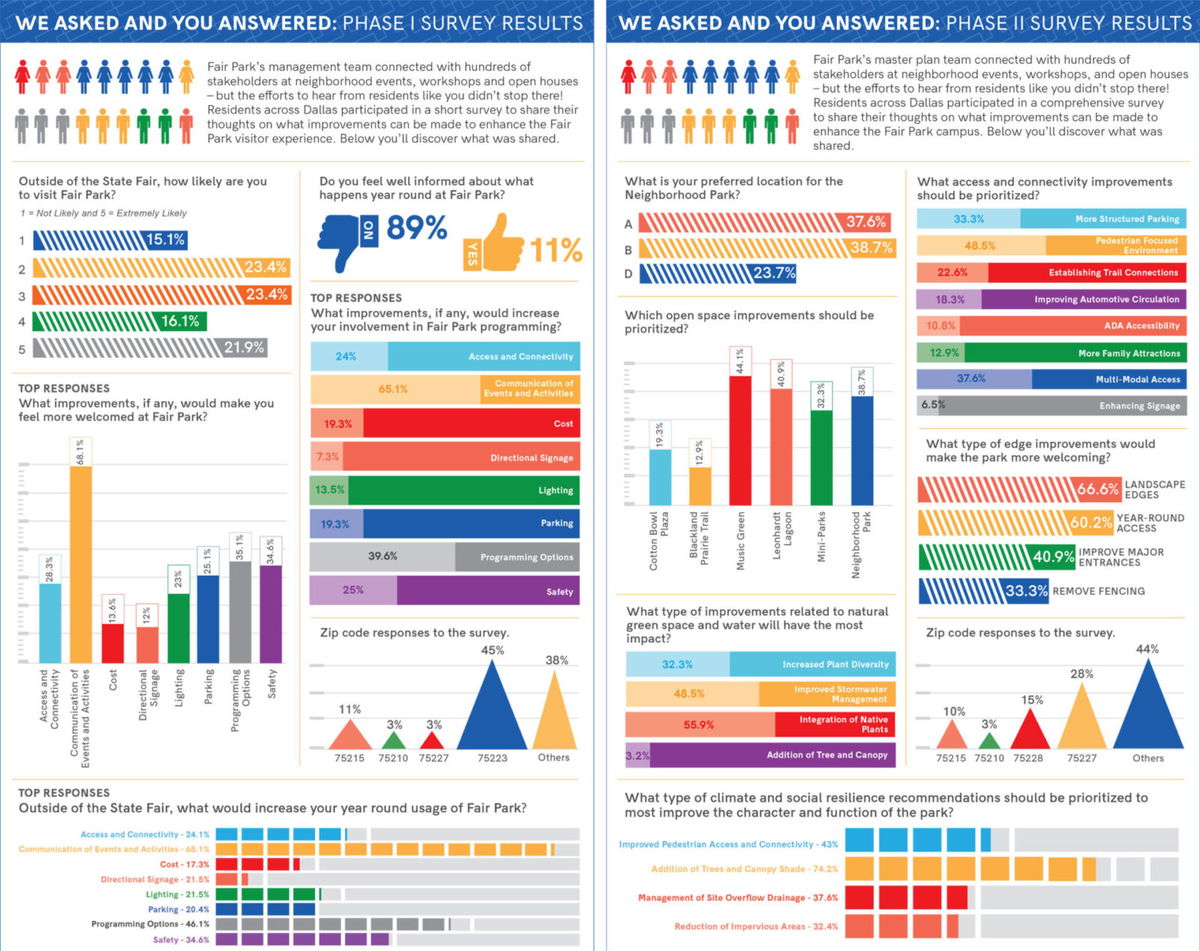
During the August meeting, South Dallas residents expressed concerns over plans for the garage and its potential impact on the local economy. During major events like the month-long Texas State Fair and the Cotton Bowl, many property owners host off-site parking to supplement their income.
At present, Fair Park’s lot has 3,283 spots, which will be replaced by the garage, reducing the parking availability to 2,133 spots. At the meeting, neighbors questioned why the park planned to spend $35 million on a structure that would reduce the available spaces. Luallen says the park doesn’t need many spots on a day-to-day basis, and for special events more patrons are using DART or ride-share services.
“What we’ve seen is the number of cars have gone down year after year. There’s more people coming on the trains and more people using ride-share,” Luallen says. “That makes sense because it’s a national trend, and technology has changed the way we go to events.”
Luallen says that Fair Park First recently partnered with Kimley-Horn, a consulting group, to gather traffic and parking data from Fair Park and the surrounding areas. Luallen says the data will be shared with the public.
“They’re able to use things, like GPS data available through cellular systems, to very accurately predict the exact number of people that are coming and going,” Luallen says. “They’ve already completed a circulation plan, and at the city’s request, we’re expanding that to a formal parking and traffic study.” Luallen says.
Kimley-Horn’s second phase of work will address increasing traffic signals in order to create safer pedestrian crossings as well as other questions raised during the latest round of community engagement.
Parking garage fees would be managed by the various organizations that utilize Fair Park for events, like the State Fair and the Dos Equis Pavilion, but parking would be free on non-event days to allow access to the park. Fair Park First will not manage the parking fees, nor profit from them, Luallen says, adding that the number of parking spaces was based in part on the contractual obligations that Fair Park has with the State Fair and Dos Equis.
The community park has been in discussion between South Dallas neighbors and the City of Dallas as restitution for the City’s bulldozing of Black neighborhoods in the late 1960s, after white attendees said seeing Black residents negatively impacted their fair experience. Even so, the park was not formally proposed until 2003, in the Fair Park Comprehensive Development Plan, and was later supported by the 2014 Mayor’s Task Force. Lawson says the community is largely on board with the plan, and he believes the community is owed the park.
“As far as I’m concerned, that’s a form of reparations,” Lawson says, telling Luallen and Fair Park First representatives he doesn’t believe they’re building the park “because you cared about us” but instead “to cover the guilt about using eminent domain and kicking folks out.”
Another concern neighbors raised was last year’s traffic flow for the State Fair, which directed visitors to Fair Park’s parking lots, while blocking some community lots and preventing community members from getting around the neighborhood for day-to-day needs. To address this, the State Fair held a meeting for parking and traffic management at the Martin Luther King Jr. Community Center this week.
Lawson says local property owners’ concerns over traffic routes that blocked their lots was a key motivator for the community meeting.
“Even though they’ve been redirecting the traffic away from us, none of us were involved in those kinds of discussions, and that’s why I’m in front of you this morning,” Lawson says.
“They’ve done a very poor job of keeping the community abreast of those efforts around Fair Park.
“The thing is that those kinds of questions should have been anticipated and thought of long before,” he says. “It shouldn’t have had to be where the community had to dig and find out on their own these kinds of things.”
Fair Park First is requesting that the neighborhood complete two surveys, the first on the community park and garage proposal. The second survey is on the park’s Cultural District status, which the park and parts of South Dallas obtained in 2021 from the Texas Commission on the Arts. The district, which includes Expo Park, South Boulevard-Park Row Historic District, Wheatley Place Historic District, Queen City, Jubilee Park and Forest Heights, still needs to be named, but will have the opportunity to apply collectively for grants for projects like community events and general infrastructure improvements, such as signage and sidewalk repairs.

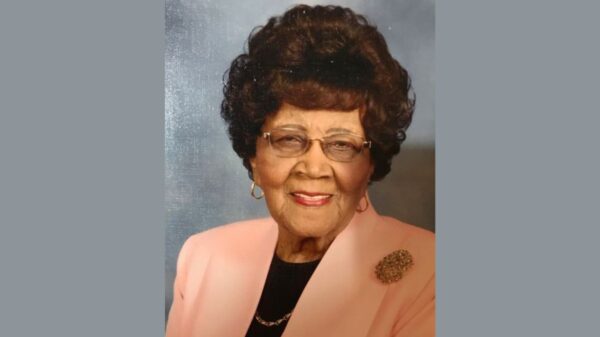





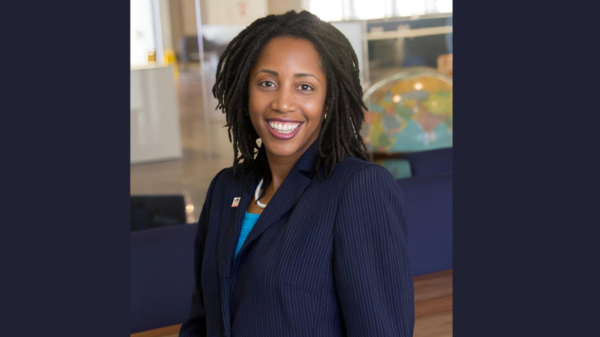

You must be logged in to post a comment Login